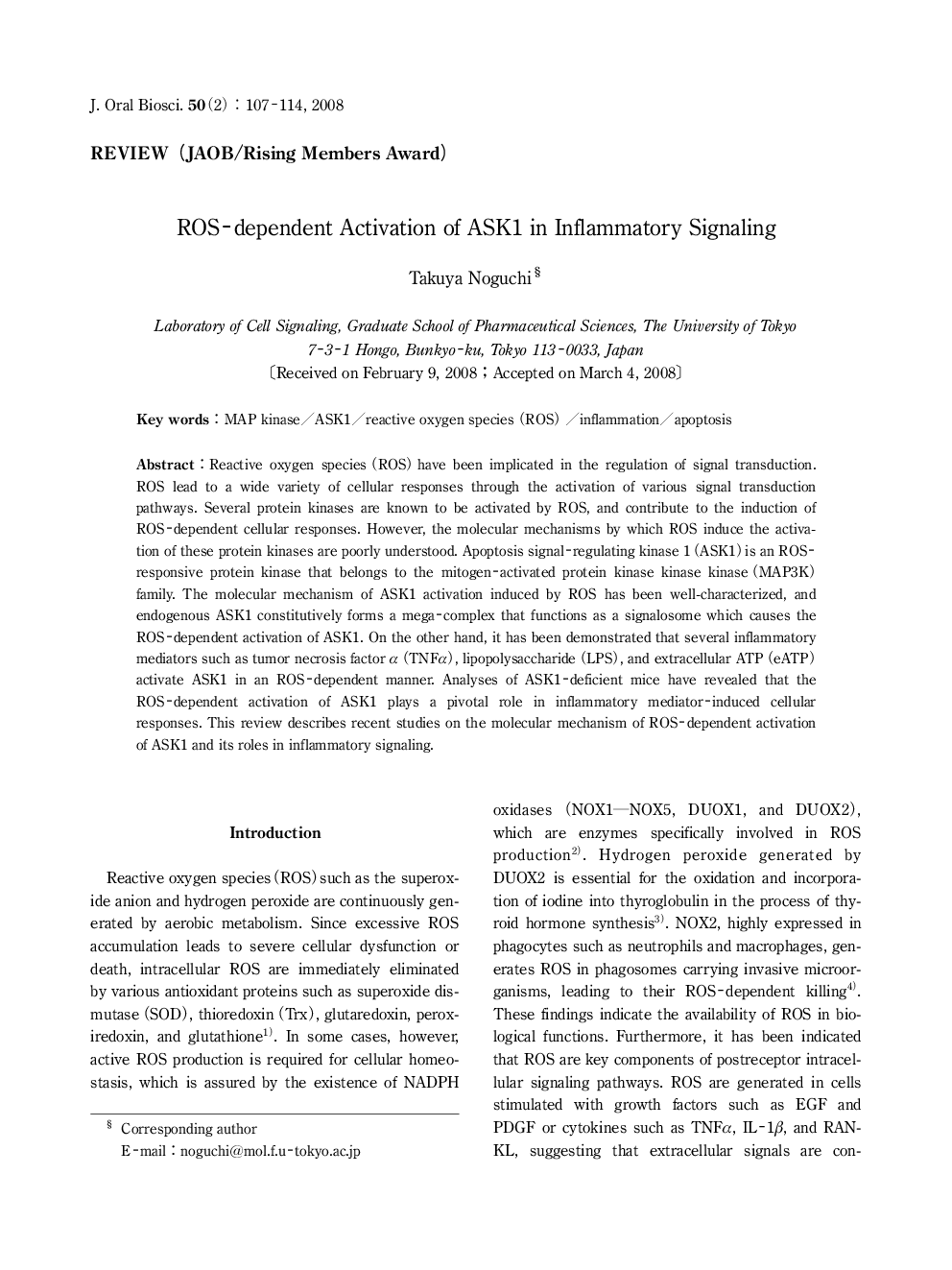| Article ID | Journal | Published Year | Pages | File Type |
|---|---|---|---|---|
| 2777059 | Journal of Oral Biosciences | 2008 | 8 Pages |
Reactive oxygen species (ROS) have been implicated in the regulation of signal transduction. ROS lead to a wide variety of cellular responses through the activation of various signal transduction pathways. Several protein kinases are known to be activated by ROS, and contribute to the induction of ROS-dependent cellular responses. However, the molecular mechanisms by which ROS induce the activation of these protein kinases are poorly understood. Apoptosis signal-regulating kinase 1(ASK1) is an ROSresponsive protein kinase that belongs to the mitogen-activated protein kinase kinase kinase (MAP3K) family. The molecular mechanism of ASKI activation induced by ROS has been well-characterized, and endogenous ASKI constitutively forms a mega-complex that functions as a signalosome which causes the ROS-dependent activation of ASKI. On the other hand, it has been demonstrated that several inflammatory mediators such as tumor necrosis factor α (TNFα), lipopolysaccharide (LPS), and extracellular ATP (eATP) activate ASKI in an ROS-dependent manner. Analyses of ASKI-deficient mice have revealed that the ROS-dependent activation of ASKI plays a pivotal role in inflammatory mediator-induced cellular responses. This review describes recent studies on the molecular mechanism of ROS-dependent activation of ASKI and its roles in inflammatory signaling.
